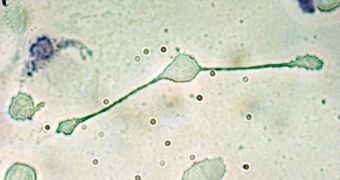Researchers at the Washington University School of Medicine in St. Louis have managed to discover that the innate immune system, that part of our natural defense that is involved in promptly and harshly dealing with infections and eliminating pathogens, has a natural memory that allows it to recognize a certain infectious agent, and deal with it appropriately and fast. The cells literally learn everything from their first encounter with the foreign agent, and the second time they meet, they remember how to defeat it, thus taking a smaller amount of time to do so than the first time.
In this week's online edition of the journal Proceedings of the National Academy of Sciences, the team behind the new research says that the data will allow them to get a better understanding of our immune system, as well as to develop novel ways of boosting its responsiveness in case of infections. This could have potentially groundbreaking applications in such fields of medicine as treating cancer, where getting the immune system to recognize that the body has a problem is the hardest thing to do.
Basically, what makes the new data so important is the fact that they detail how the innate immune system's own killer cells learn to recognize invaders, as opposed to adaptive immune cells, on whose ability most vaccines are based. Considering that innate cells have this ability, which researchers named “memory-like,” new types of vaccines could address them directly, without having to go through the regular adaptive cells first.
“We're calling this new property 'memory-like.' Natural killer cells can't specialize in recognition of a particular pathogen, but we found that once they've been activated, they can respond more easily and effectively to the next call for activation,” the senior author of the new study, Wayne M. Yokoyama, M.D., who is the Sam J. and Audrey Loew Levin professor of Medicine at the School of Medicine, explains.
“Other innate immune cells may also have similar properties. It should be possible to therapeutically exploit these memory-like properties to make more effective immune cells,” he adds. Potential applications include the creation of vaccines able to supply newborns with the essential protection they need before their own immune systems come to life.

 14 DAY TRIAL //
14 DAY TRIAL //